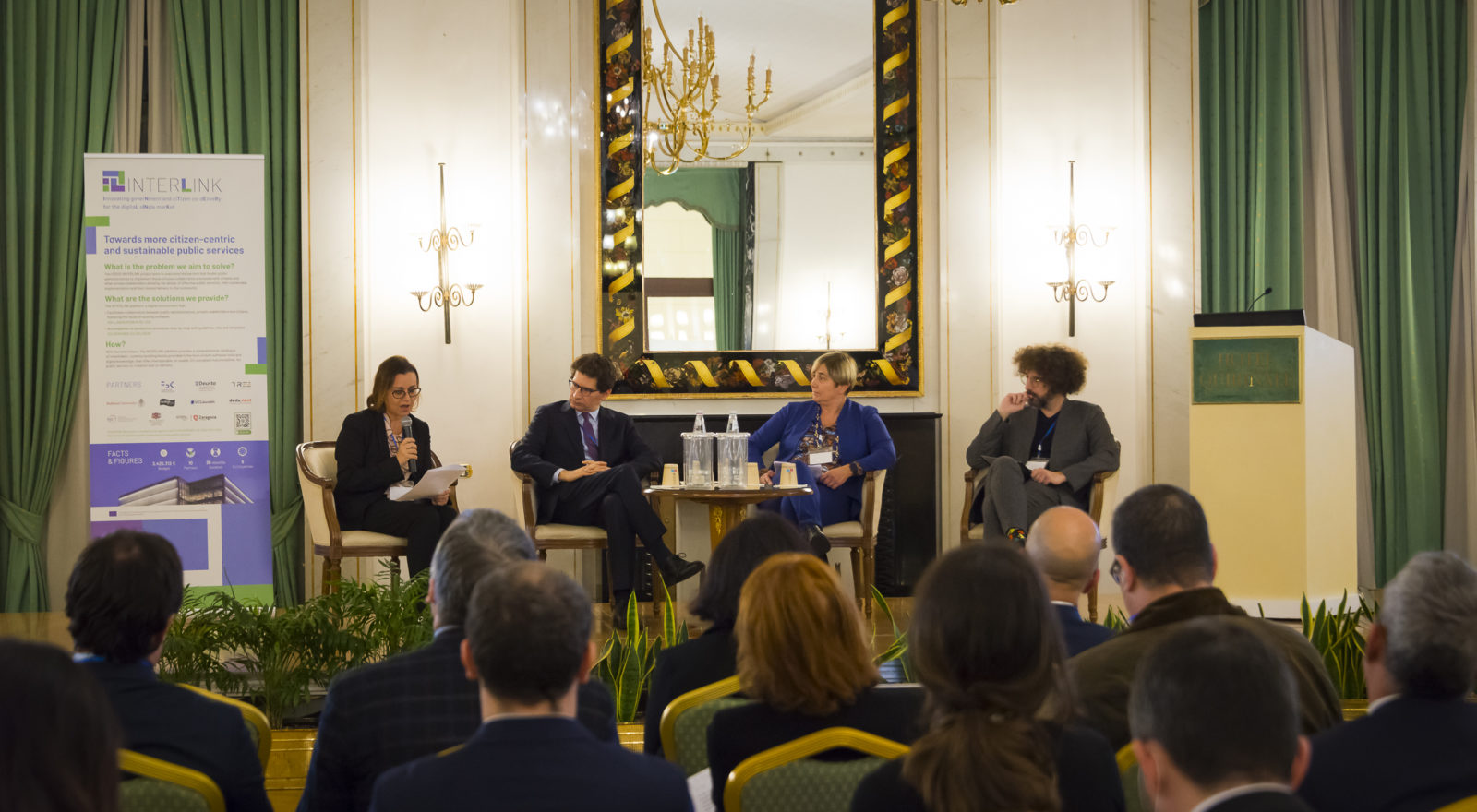
INTERLINK Project – the presentation of the results achieved in the first two years was held in Rome
The goal of the project coordinated by FBK is to overcome the barriers that prevent administrations from reusing and sharing services with citizens by developing a new model of collaborative governance.
The public event entitled “Democratizing co-production of sustainable public services. What are the legal and technical barriers to co-delivery?” was held in Rome on December 14 to take stock of the first two years of activity of the INTERLINK European project coordinated by Trento-based Fondazione Bruno Kessler.
Funded under the Horizon 2020 program, INTERLINK aims to overcome barriers that prevent administrations from reusing and sharing services with private partners, including citizens, by developing a new model of collaborative governance.
The event, organized by the Ministry of Economy and Finance in cooperation with Fondazione Bruno Kessler for all project stakeholders-particularly public administration actors, aimed to open a discussion on the state of the art of public-private sector collaboration for co-production of services, stressing the legal and technical barriers that still exist for large-scale adoption of this innovative approach.
The initiative met with a considerable level of interest, registering more than 40 in-person participants-primarily from Rome-based public administrations and government agencies-and up to more than 150 online visitors.
The proceedings were opened by Andrea Rotondo, project advisor at European Research Executive Agency and INTERLINK project officer, Marco Pistore, director of the Digital Society Center (FBK), and Giuseppe Parise, director general of the Directorate of Information Systems and Innovation (MEF).
After the presentation of the project and its relevance in the field of co-production of public services by coordinator Matteo Gerosa, there was a panel discussion moderated by Giovanna Galasso (associate partner of Intellera Consulting), with the participation of Francesco Paorici (director general of the Digital Italy Agency), Monica Gabrielli (Head of Strategy and New Initiatives Development Function, Sogei), Daniel Sarasa Funes (director of the Zaragoza City of Knowledge Foundation – FZC) and Marco Maria Pedrazzo (Head of Design at the Department for Digital Transformation of the Prime Minister’s Office).
The discussion focused on the importance of encouraging the democratization of service creation processes through co-production initiatives based on collaboration between public and private actors. At the same time, remaining hindrances to effective and widespread co-creation and co-delivery of public services and potential solutions to overcome them were pointed out
The event wrapped up with the presentation of the results of the first field trial of the solution developed by INTERLINK for joint creation and provision of services in three use cases identified in three European countries: Italy, under the coordination of MEF, presented by Roberta Lotti (Innovation Manager at MEF); Latvia, under the coordination of the Ministry of Environmental Protection and Regional Development (VARAM), presented by Matīss Veigurs (project manager at VARAM); and Spain, under the coordination of the City of Zaragoza, presented by Daniel Sarasa Funes (director of the Zaragoza City of Knowledge Foundation – FZC).
“The event,” said Matteo Gerosa, INTERLINK Coordinator, “was a success. It enabled us to showcase the project’s achievements to a high-level audience and top executives of the Italian public administration. INTERLINK has raised a lot of interest, certainly a good sign for the final testing phase that will take place in mid-2023.”

